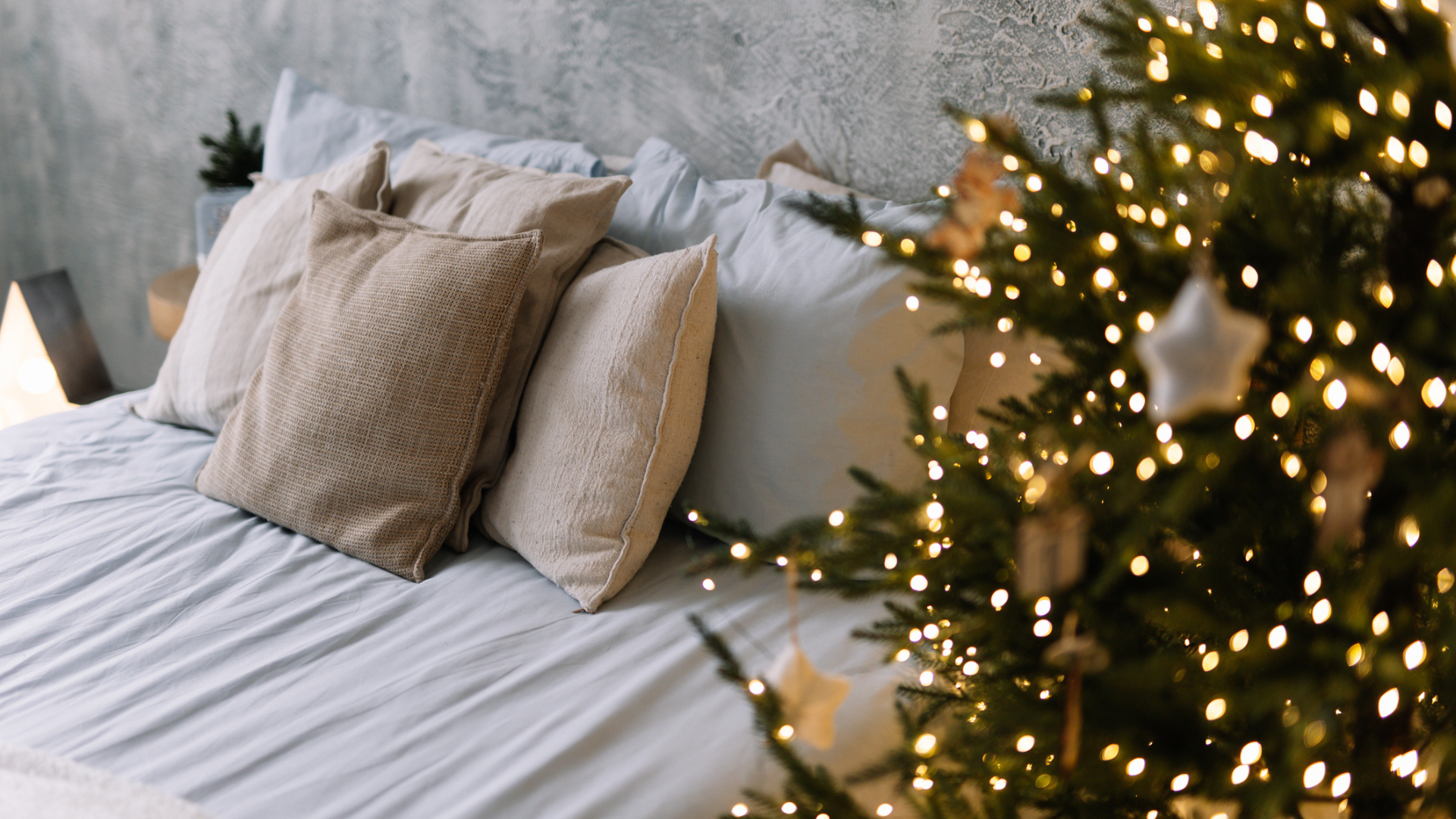Trouble sleeping during menopause? Expert shares 5 tips to help you fall asleep fast
Here are five things that can help you sleep better during menopause, according to an expert
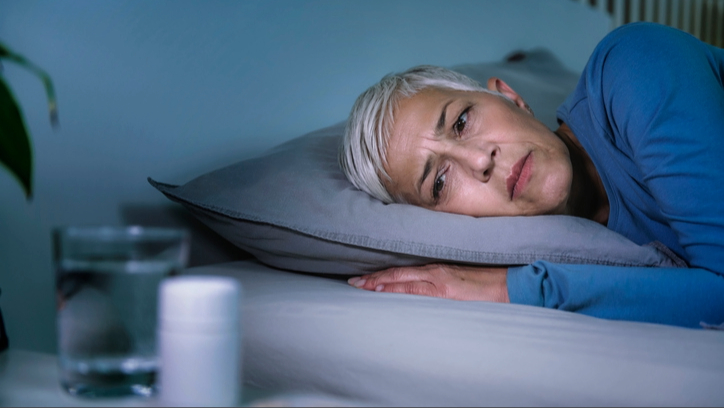
If you're a woman struggling to sleep during menopause, know that you are not alone. A third of women’s lives around the world are affected by poor sleep during menopause, according to a 2023 study.
Menopause comes with a range of debilitating symptoms from hot flushes to anxiety and brain fog, which already have a detrimental impact on women’s mental health and energy levels. Adding night sweats and insomnia into the mix and it is easy to see why this period can be so draining for many women.
This Menopause Awareness Month, medical doctor who specialises in Obstetrics, Gynaecology and women’s health, Dr Sarah Jenkins, is helping us understand how hormone changes during menopause and perimenopause can play havoc on your sleep routine, and offering advice on how to manage your sleep cycle during this time for limited disturbance.
- Read more: Perimenopause expert shares 3 things you can do to sleep better tonight
- Read more: Over 70% of women feel their sleep is impacting their mental health, new survey reveals
How does menopause affect sleep?
According to data from the National Institute of Health, sleep disturbance varies from 16% to 42% before menopause, from 39% to 47% during perimenopause, and from 35% to 60% after menopause.
Menopausal sleep issues range from night sweats and bedtime anxiety to insomnia. Dr Jenkins says hormonal changes have a significant impact on sleep quality. It is particularly the decline in the hormones progesterone and oestrogen that can lead to anxiety, night sweats and disturbed sleep patterns.
How to manage poor sleep during menopause
Dr Jenkins highlights the complexity of hormonal interactions, the variability of symptoms between women and the need for individualised treatment. However, she says there are things you can do to ensure you get the best sleep possible during this transitional period.
With sleep being a persistent issue for women, we asked Dr Jenkins for her tips on improving sleep quality throughout menopause. Here’s what she recommends…
1. Get a blood test
Firstly, getting a blood test will ensure you get an accurate diagnosis of any hormone changes in your body during menopause and perimenopause. Dr Jenkins says: “It’s a complex cascade of hormones, so it’s good to have blood tests to understand what is going on.”
Blood tests can help you tailor your treatment plan to target sleep issues. In some cases, Hormone Replacement Therapy (HRT) will be medically advised for improving sleep quality. In other cases, natural remedies can suffice.
2. Try natural remedies
There’s no denying that magnesium can help you sleep. Supporting the production of melatonin, which is the hormone that regulates the body’s sleep-wake cycle, magnesium calms the nervous system and promotes rest.
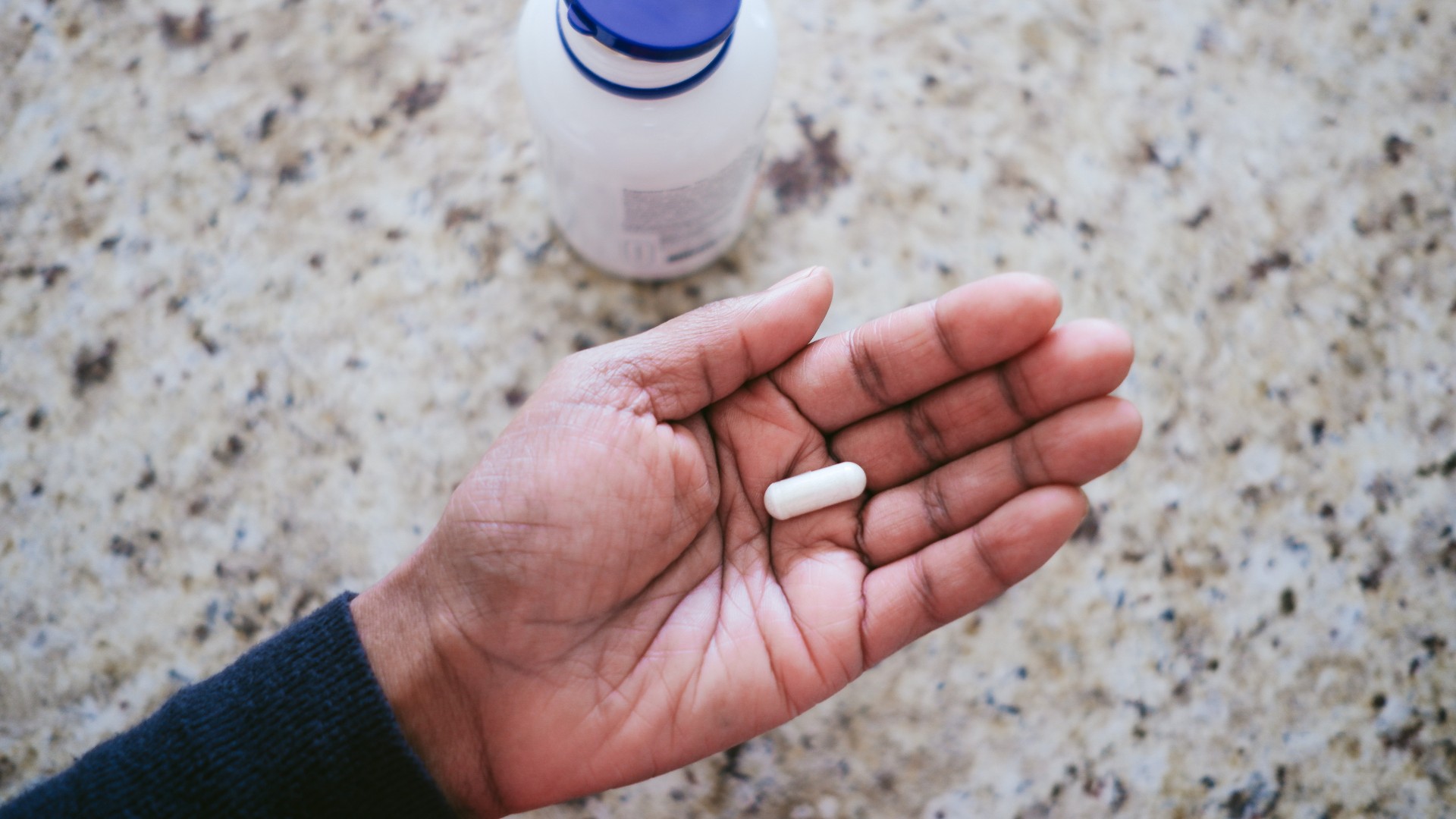
With the correct dosage (too high a dose can lead to gastrointestinal problems), magnesium supplements are effective sleep aids. However, it is always best to get nutrients from whole foods in your diet before turning to supplements. Magnesium can be found in dark chocolate, leafy green vegetables, fish, nuts and whole grains.
3. Maintain good sleep hygiene
There's no surprise that maintaining good sleep hygiene will help you sleep better. Dr Jenkins reinforces the familiar methods of improving sleep such as keeping your electronic devices out of bed, going to bed at the same time every night to regulate your circadian rhythm and maintaining a clean sleep environment.
4. Keep as cool as you can
Granted, it can seem an impossible task to keep cool when your body isn’t producing enough oestrogen to effectively thermo regulate as a result of menopause. But Dr Jenkins highlights the importance of a well ventilated, cool room and cotton clothing for your best chance at reducing night sweats.
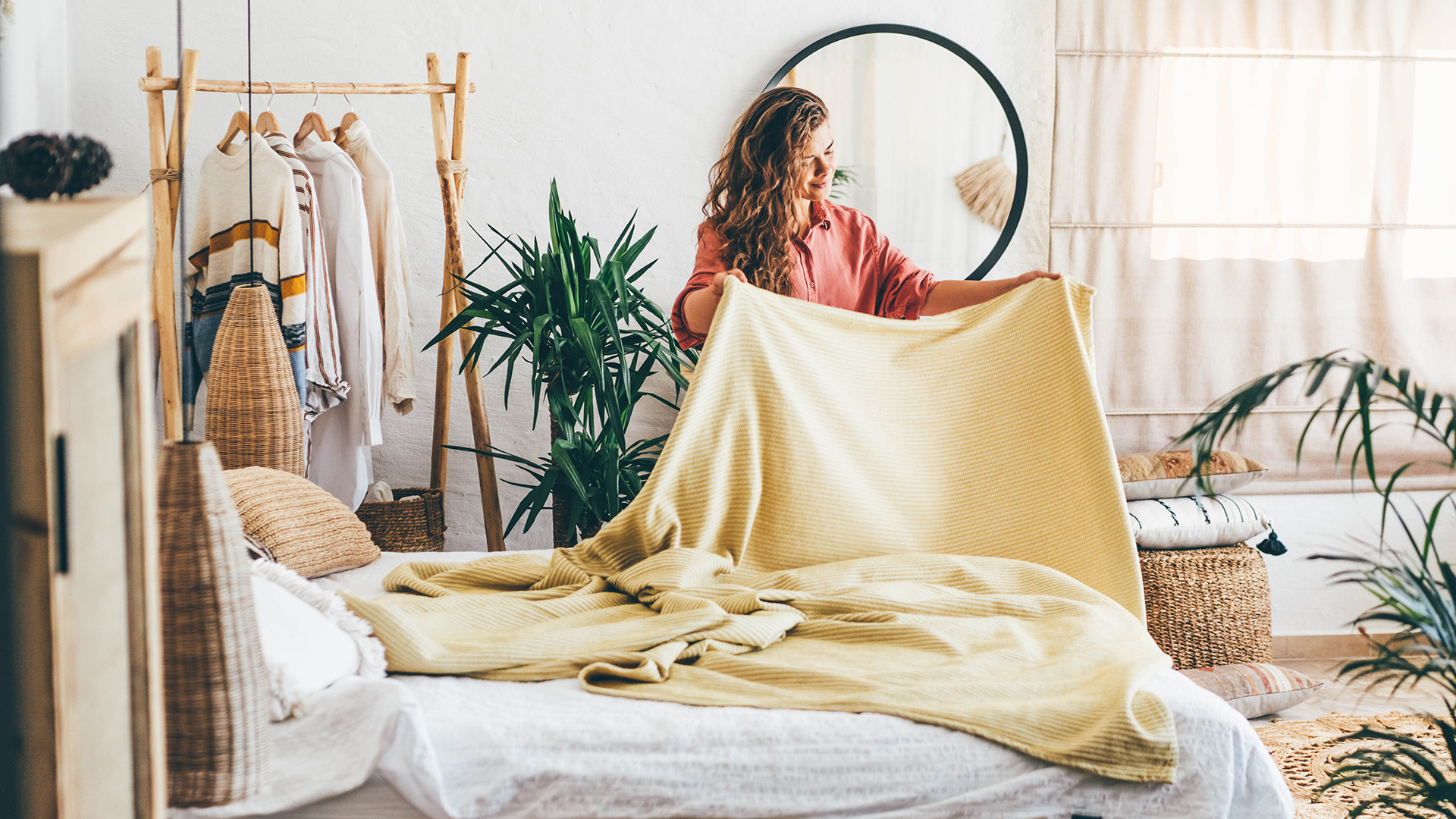
If you're really suffering to keep cool, investing in one of this year’s best cooling mattresses or a smart bed with automatic temperature regulation would be a great shout, if you’ve the budget.
- Read more: Vivid dreams during menopause: Hormone health expert explains what’s going on
- Read more: How to prevent night sweats — doctors share their top 5 tips
5. Reduce alcohol intake
A nightcap might be one of the biggest misconceptions in the world of sleep as new studies show that even drinking 2 or 3 alcoholic drinks before you sleep will affect your sleep quality - this is because it disrupts both your deep and REM sleep.
Hence, reducing your alcohol intake can help sleep quality when it is already suffering during menopause.
Sleep and menopause: What to expect and how to cope
How hormone changes impact sleep quality
Oestrogen and progesterone, which both drop during perimenopause and menopause, are hormones that help sleep quality and duration.
“As our progesterone drops, it has a knock on effect on sleep and mental health. The drop in progesterone heightens anxiety levels, meaning we can wake up really anxious in the middle of the night,” Dr Jenkins explains.
As all hormones are well connected, with a drop in progesterone comes a rise in cortisol. Known as ‘the stress hormone’, higher levels of cortisol can lead to weight gain, low mood and insomnia. Dr Jenkins adds: “When our cortisol levels are raised, we are much more likely to wake up early in the morning,” which again eats into sleep duration.
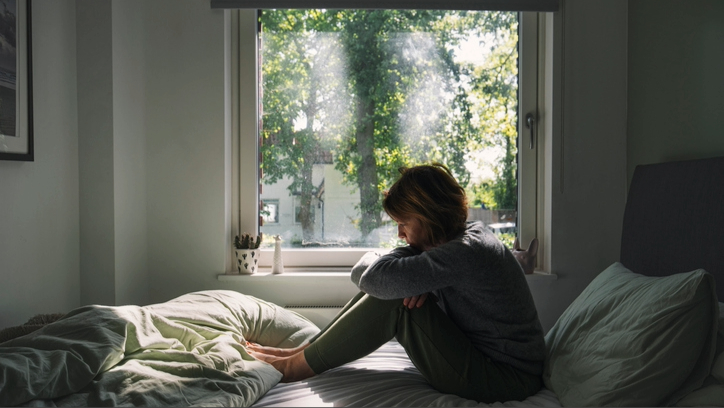
Oestrogen is another hormone affected by menopause. Once in their thirties, women can start to lose up to 30% of oestrogen every year and this is what causes night sweats. “Oestrogen has a big role in regulating our cardiovascular system,” explains Dr Jenkins.
She adds: “Our cardiovascular system is heavily involved in what we call thermo regulation – the centre of the body that controls our heat. And when we have an oestrogen deficiency, we can get hot flushes. Hence, you can wake up really hot in the night, literally soaking the bed sheets with sweat, while someone next to you is freezing cold.”
Do all menopausal women struggle to sleep?
With symptoms differing from woman to woman, it can be difficult to diagnose and help menopausal women, especially since there is a lack of research into individual cases.
Dr Jenkins says: “Every woman is different and unique. Some women don’t have any hot flushes. Some don’t have any night sweats. Some don’t have any anxiety. This is where we need a lot more research into how these hormones affect us all differently.”
Menopause starts, on average, between the ages of 45 and 55, but there are exceptions to that – as was the case for Camilla Sharman, a 53-year-old business journalist, whose perimenopause symptoms, specifically night sweats, began in her mid to late thirties.
Camilla’s story of early perimenopause
First there were unexplained night sweats. Camilla recalls suffering severely with these episodes, rather than daily hot flushes, in her mid to late thirties. “With night sweats what happens is you wake up unexpectedly and you will literally be soaking,” she says. “Your nightwear will be really sweaty and there’s no way you can go back to sleep unless you go and change. But your bedding is also wet.”
The night sweats were Sharman’s first indicator that something wasn’t quite right, that her hormones were out of balance. But, as the first among her friends to show symptoms, she didn’t immediately realise it was perimenopause.

All Camilla’s female family members, including her identical twin sister, also experienced menopausal symptoms around the older, average age.
Sharman says: “I remember going to the doctors one day – probably about something else – and I brought it [the night sweats] up. I could see a light bulb moment in the doctor’s eyes. These issues were because I was going through very early menopause.”
“It wasn’t something I was aware of, and at that time there wasn’t so much awareness around menopause. Thankfully, there’s so much more awareness about it now,” she adds.
How menopause affected Camilla's sleep
Camilla Sharman says her experience with sleep problems during menopause has been “an ongoing journey” despite having blood tests and being put on HRT straight away with the help of consultants. “I wouldn’t say it’s been very easy,” she says.
Compounding night sweats was a mind unable to switch off, making it a struggle to fall asleep in the first place, no matter how tired she was. Camilla says: “It doesn’t matter how much you’ve done in the day – and I exercise regularly as well – sometimes I’d try to go to sleep and my mind would still be buzzing. Whereas, other night’s I’d be fine to settle down to sleep.”
For me now, a good night's sleep would be about seven hours, but that’s likely broken sleep
Discussing the impact this lack of sleep had on her overall quality of life, Camilla told us: “The unpredictability of it was the worst thing for me because I never knew if I was going to get a decent night's sleep or not. It was all a bit random.”
Preconditioned to disrupted sleep after raising two restless children. “I’m so used to not sleeping very well, I’ve just kind of got on with it.” From motherhood to menopause, Camilla’s sleep cycle has taken a fair few hits...
“I still don’t sleep that well. For me now, a good night's sleep would be about seven hours, but that’s likely broken sleep. Sometimes it can take me well over an hour to get off to sleep.”
To help herself where she can, Camilla drinks a caffeine-free night tea and has recently started supplementing magnesium. Although she is supplementing this primarily for bone health, she hopes it will improve her sleep quality too.

Eve is a sleep tech product tester and writer at Tom's Guide, covering everything from smart beds and sleep trackers, to sleep earbuds and sunrise alarm clocks. Eve is a PPA-accredited journalist with an MA in Magazine Journalism, and has four years’ experience writing features and news. In her role as Sleep Tech Product Tester and Writer for Tom's Guide, Eve is constantly trying out and reviewing the latest sleep products from brands such as Apple, Garmin, Whoop, Hatch, Sleep Number, Eight Sleep, and Oura. A fitness enthusiast who completed the London Marathon earlier this year, Eve loves exploring the relationship between good sleep, overall health, and physical performance, and how great sleep tech can make that relationship even better.
You must confirm your public display name before commenting
Please logout and then login again, you will then be prompted to enter your display name.
